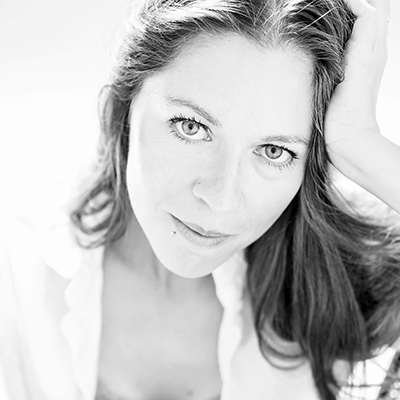We selected five such conversations—with illustrator Ella Paton, author and science communicator Kat Arney, filmmaker Rob Petit, historian (and consultant to the Netflix series The Crown) Robert Lacey, and toy designer Luc Hudson—to enlighten us as to what they do, why, and how they found their creative voice within the cultural crossroads that is London, England.

Image courtesy Lily Clayton Hansen.
We read about genes all of the time but it’s rare that someone understands the language of science. Author, podcaster, and science communicator Kat Arney breaks down the logistics of her lexicon by using a storytelling format that the common folk can comprehend. From freelance writing to her decade-long career as co-presenter of BBC radio show “Naked Scientists,” Arney leveraged her artistic abilities to carve out her niche. While her research background and PhD from Cambridge are industry qualifiers, it is Arney’s knack for spinning science as sexy that is her genius. She’s making others give a damn about science by merging it with creativity.
Do you consider yourself a performer or scientist first?
I still wrestle with that philosophical question because I’ve always loved writing and performing on stage, whether it’s acting or as a musician. My parents aren’t scientifically minded but I had a chemistry set when I was young and kept snails in my bedroom. [Laughs.] At university, I started writing about science for the newspaper column. That led to getting involved in Science Week, podcasts, and writing competitions.
When was the first time you thought, I can turn science into a career?
I was always very good at and interested in biology and chemistry because I loved studying the molecules that make the world work. The path I was on equaled: get your PHD, become a researcher, and then a professor. I felt rather fractured when I realized as a researcher that I wasn’t very good in the lab. I became seriously depressed because I had spent ten years trying to be a scientist and realized I didn’t have the dedication, long-term vision, or meticulous nature of a researcher. I was more fascinated by the stories within the lab.
If you want to change fields, find those who are doing what you want to do. Eventually, they'll accept you as their own.
You were also on the cutting edge of science podcasts, blogs, and video.
Social media and Youtube didn’t exist when I was starting out. My first big break was for an online magazine. I submitted an article titled something like “Ten Reasons You Should Leave the Lab Right Now” on spec and was offered a monthly column. It was the first time I realized that people got paid to write online. From there, I began to meet more people doing this kind of work. It’s why I believe that if you want to change fields, find those who are doing what you want to do and hang around with them. Eventually, they will accept you as their own.
How did you make the leap from online articles to working with the BBC?
I’ve said, “yes” to pretty much everything. At the beginning a lot of it was unpaid and quite hard work. In the passion-driven world, a lot of the time you learn as you go, until you recognize your value. It’s similar to an apprenticeship.
I see myself as a translator for people that are keen to learn more.
How did you learn to write for radio and why is that your favorite medium?
I was put in touch with the Naked Scientists over 15 years ago and really, really took to it. I love interviewing people and doing unscripted, live talk radio. I think radio, audio books, and podcasts are so effective because it’s people’s voices and stories right in your ear. Also it’s a lot easier to make radio than telly!
What do you think about your first book resonated with readers?
I find a lot of science books to be very boring. I wanted mine to be written in first-person interviews as though you’re eavesdropping on really great pub conversations—in which you learn a lot

Photo credit: Ben Valsler
I always wondered what scientists did all day. You humanize their jobs.
Scientists are grumpy, nice, and have twinkling eyes from time to time. [Laughs.] A lot of people get really obsessed with black holes, but I love writing about genes because that’s what matters to us as human beings. Genes affect your health, life span, and why we are the way we are.
Can you describe the ideal group you would want to communicate with?
I am interested in those who don’t have a science background but are curious about the world around them. In one day, I gave the exact same talk to a group of 12-year olds and then one at Mensa. Both audiences understood and appreciated the information I unpacked and unfolded for them.
I’m a visual person, which helps me reach for metaphors to explain what I’m seeing. Also, I just like showing off!
What about your personality makes you well equipped for the job?
I’ve always read a lot. If you have a lot of words it helps. I’m also a very visual person, which helps me to reach for metaphors and analogies to explain what I’m seeing. Also, I just like showing off! I have spent 15 years practicing, communicating, and learning how to teach others about science. I am always refining what I am doing because I can always do better.
This interview has been edited for length. Read even more from Lily Hansen in Word of Mouth: More Conversations.

